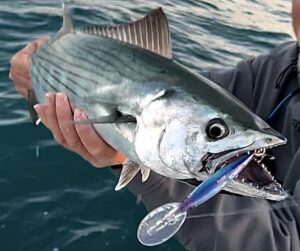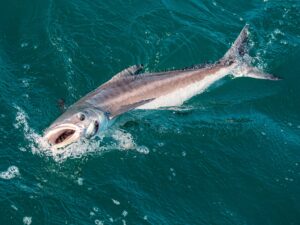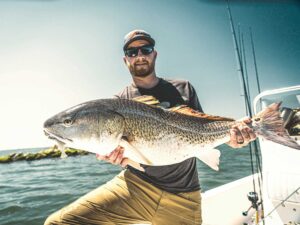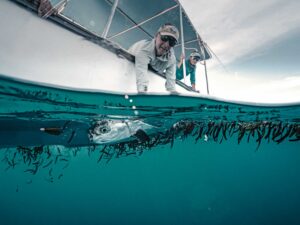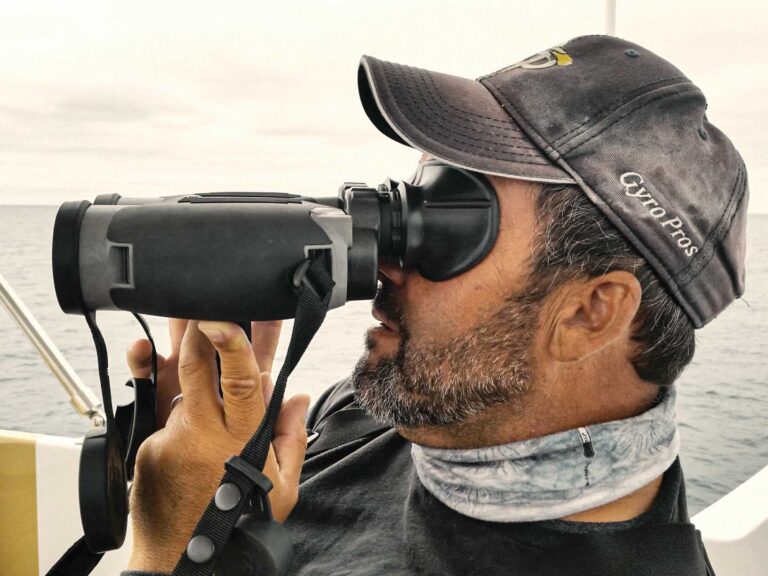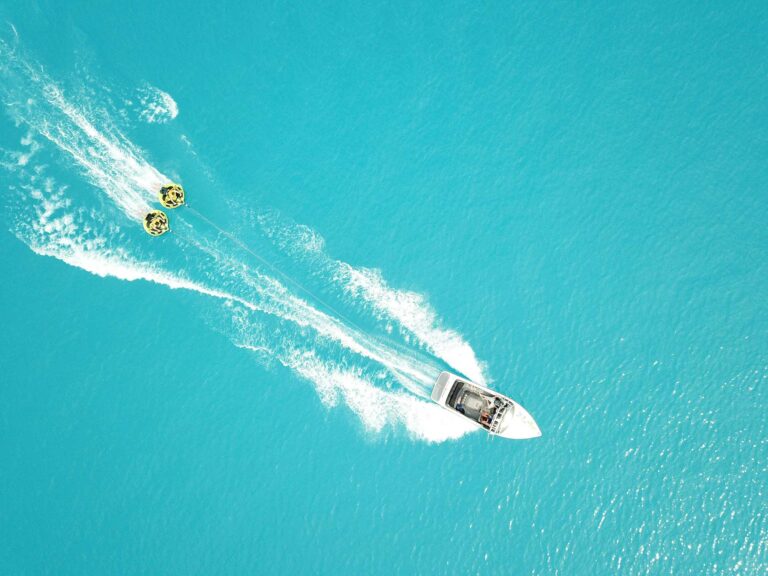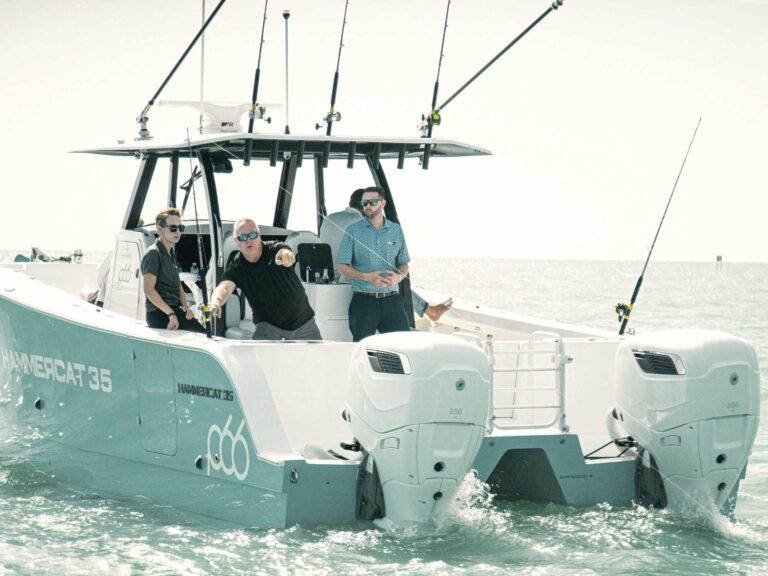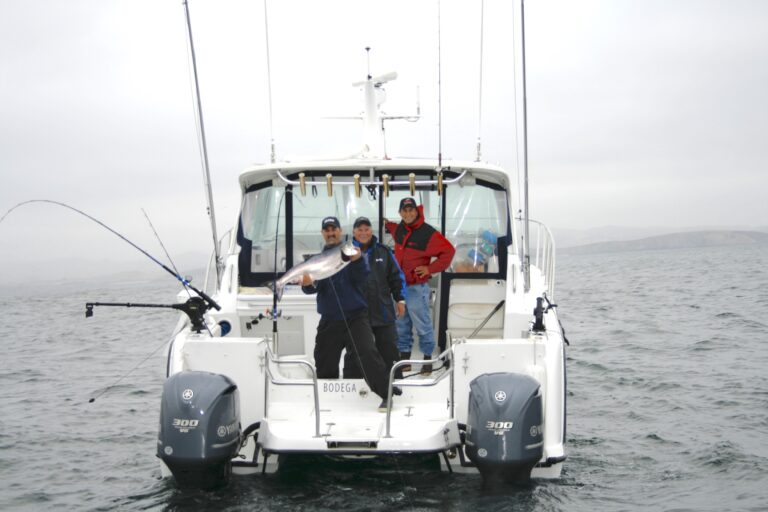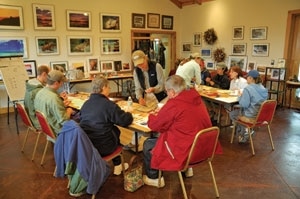
While some fly-fishing newcomers pick the sport up quickly, it’s no secret that most find it quite difficult. From casting to quick-moving targets under excessively windy conditions to learning the complex knots required to hold strong marine species, the challenges are many for a new saltwater fly angler. Even experienced freshwater anglers can be overwhelmed.
As host of several saltwater fly trips each year for Frontiers Travel, Barry Beck has witnessed this sort of thing countless times.
“Quite a few people we see out there are coming out of the trout world,” Beck says. “It’s a brand-new experience for these folks, and if they’re not prepared, it can be really frustrating for them. In some cases, it’s their first and last saltwater trip.”
It pains Beck to see this. As one of the industry’s good guys who cares deeply about the sport and the enjoyment of its participants, he has an important message for fly-fishers new to the saltwater arena: Prepare yourself before you hit the water!
Time to Go to School
Luckily, there’s an easy way to do this. New saltwater fly anglers should consider attending a fly-fishing school. Whether you simply take casting lessons at your local fly shop or enlist in one of the country’s prominent saltwater classes, you’ll likely save countless hours of frustration on the water. You may even save money.
“I’ve found that we’ll typically save a new or intermediate angler thousands of dollars’ worth of mistakes and weeks of trial and error,” says Sandy Moret, owner of the Florida Keys Outfitters Fly Fishing School in Islamorada.
Since 1989, Moret’s operation has stood at the forefront of saltwater schools, with a cast of instructors the likes of Jerry Siem and Chico Fernandez. Students spend a long weekend of intense training, learning the finer points of casting, rigging and proper fish-fighting techniques from those who, in many cases, helped pioneer some of these principles.
“It’s a fun couple of days,” Moret says. “When it’s done, I feel like I’ve been to summer camp! In terms of the rigging, we show them how we do it and what works. And when you look at the amount of experience the guys on my staff have, it’s mind-boggling. It’s hundreds of years of experience.”
Moret says about two-thirds of participants go on to take up the sport in some regular capacity, and “about half of those really become passionate. I’ve even seen it change some lives over the years.”
Classroom-Based Learning
Fly-fishing retail giant Orvis runs a number of classes tailored to the brine. The outfitter operates 13 fly-fishing workshops across the country, with three saltwater-specific ones in Florida alone, according to the company’s head fly-fishing instructor, Truel Myers.
“It’s all based on a 1-instructor-per-4-student ratio,” Myers says. “We’re adamant about that. We cover pretty much everything that needs to be covered, generally in a two-day format.” As with most good schools, casting instruction is first and foremost on the agenda. Students are videotaped while casting, notes Myers, who’s seen bad habits disappear immediately once a student actually sees what he’s doing.
Like Florida Keys Outfitters, Orvis holds training in an off-the-water classroom setting. However, students can easily hire a guide after completion to put their newfound skills to the test.
Orvis also hosts several saltwater fly-fishing seminars during the course of the year. Ideal for those who have just completed lessons or for those with some level of saltwater fly-fishing experience, these group outings include some instruction from accredited hosts, but more than that, they provide a comprehensive starter package for those ready to hit the water.
On-the-Water Schools
Then there are schools run by individuals who organize outings to specific destinations. These often incorporate some off-the-water training, but by and large, they are designed to provide on-the-water learning experiences.
Longtime Florida Keys captain Jake Jordan hosts several of these throughout the year. Some of the most successful are his Guatemala-based billfish sessions. Held at the Casa Vieja Lodge, the trips are typically designed for three anglers, who share a boat with Jordan and learn finer points of taking billfish on fly alongside some of the best captains in the world. Larger sessions utilizing more than one boat are also available.
“When you’re new to something,” says Jordan, “I’ve found that it’s much easier to learn while watching somebody than simply by trying to do it yourself.”
In 16 years, Jordan says he’s never had a student catch less than two sails on fly. And he’s not the only one hosting these trips. Among others, Capt. Bruce Chard of the lower Florida Keys hosts a popular Ultimate Bonefishing School at the Andros South lodge in the Bahamas.
The choices are many when it comes to learning the ins and outs of saltwater fly-fishing. Yet many still forgo studying the fundamentals. This is a mistake, and as Beck says: “We can get golfers to practice! We can get tennis players to practice! Everybody seems to want to practice except fly-fishermen!”
Do yourself a favor: If you’re new to this game, sign up for schooling before you hit the water for the first time. You’ll be glad you did.
Fly-Fishing Schools
American Fly Fishing Schools
732-267-0058; www.americanflyfishingschools.com
Bruce Chard’s Fly Fishing Schools
305-872-4996; www.brucechard.com
Cathy Beck’s Casting Clinics
877-278-5638; www.barryandcathybeck.com
Florida Keys Outfitters
305-664-5423; www.floridakeysoutfitters.com
Jake Jordan’s Billfish Schools
252-444-3308; www.jakejordan.com
L.L. Bean Fly Fishing Courses
888-552-3261; www.llbean.com
Orvis Fly Fishing Schools
866-531-6213; www.orvis.com

